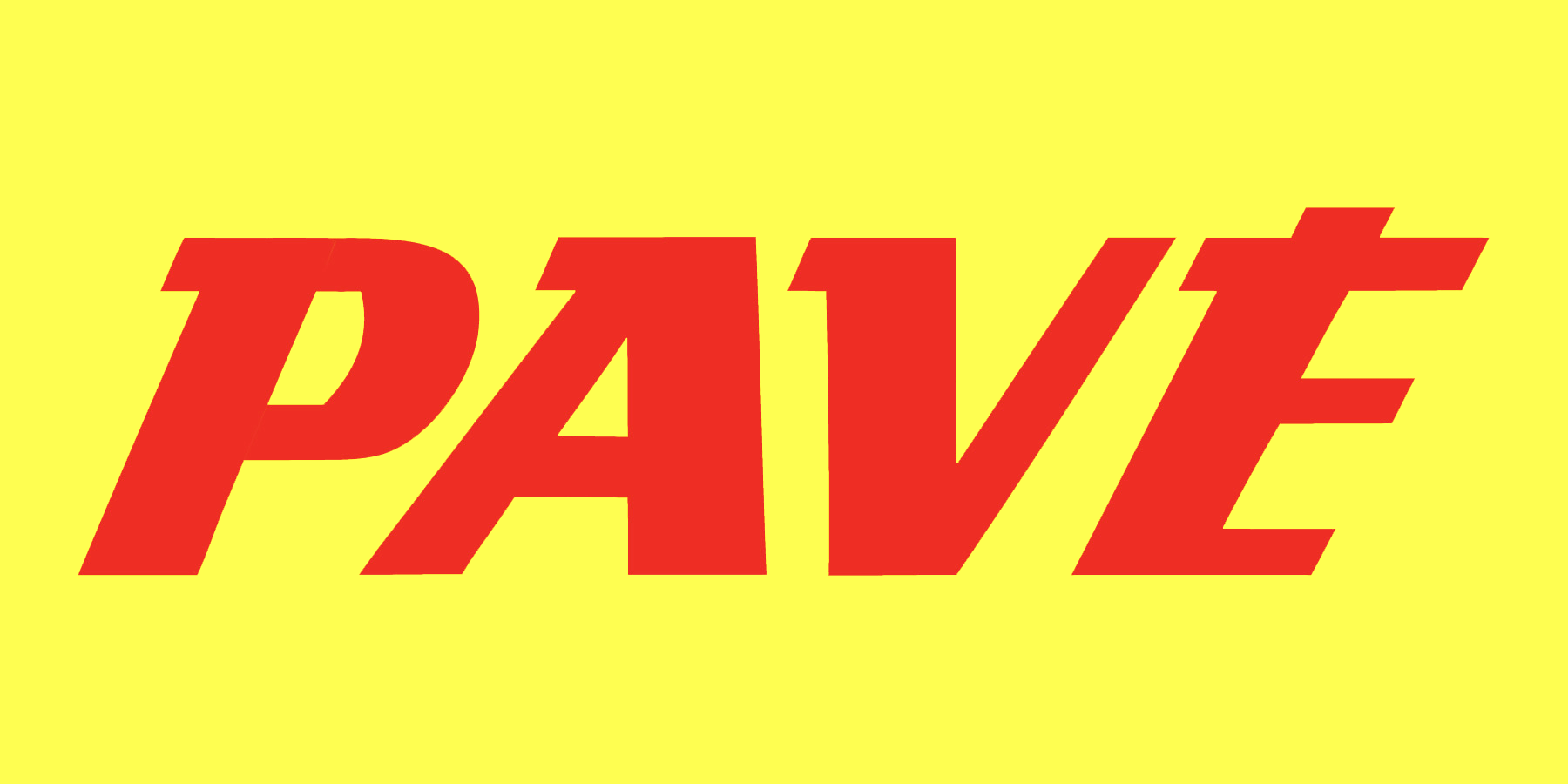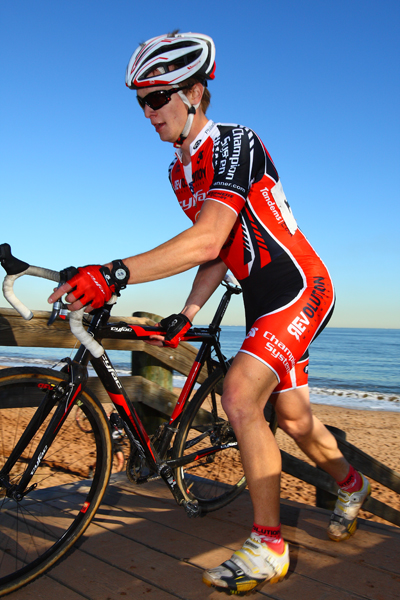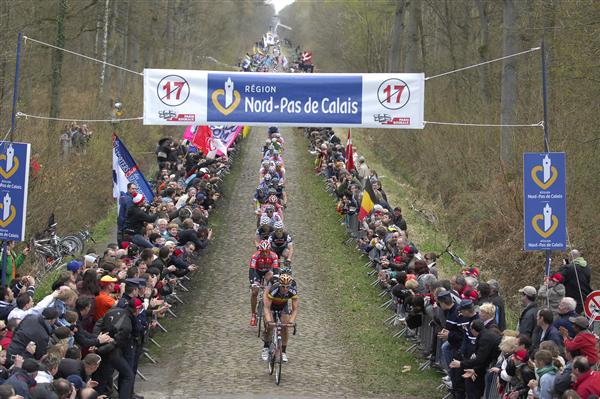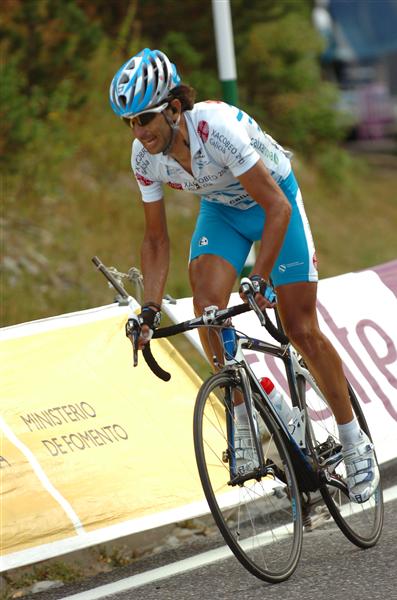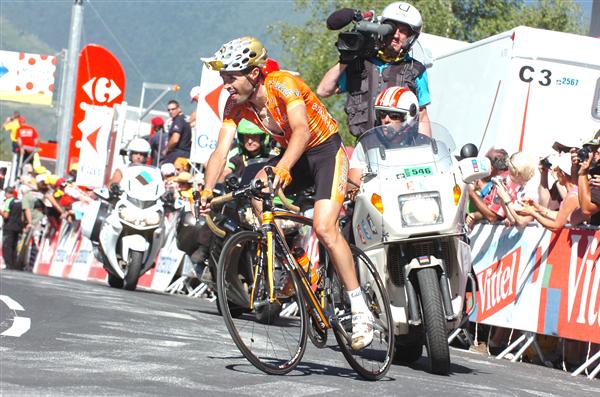For the past two seasons, Valentin Scherz, a 20-year-old elite cyclocross racer from Switzerland, has come to the US to compete in races as part of the Philadelphia Cyclocross School program. This season he was captain of their 2010 Cyfac-Champion Systems p/b Revolution Wheelworks Team. In 2010, Scherz successfully defended his Mid Atlantic Cyclocross Series titles (Elite & U23), while also competing in other events including Cross Vegas, Gloucester, Providence, and a few rounds of the USGP, winning five races and standing on the elite podium 11 times.
Scherz has since returned to Switzerland and is now competing in World Cup and other major European events as preparation for the World Championships, where he hopes to improve upon his 23rd-place from last year. Valentin’s graciously agreed to check-in with us periodically throughout the rest of the season, sharing his experiences and insights with us all from the perspective of someone who has competed at the top level both domestically and abroad.
Strangely my biggest competition as an elite cyclocross racer is not during the races. No, the most difficult for me is before the race. If you are prepared for a race, even if it’s snowing, freezing, muddy etc., you don’t feel it; the race is short and the adrenaline make it so that you don’t really feel it- If everything is OK….  In fact before a race, to get ready for an event, to get ready for the hour of the day, there are plenty of things that need to be managed. For example, look at my preparation for my first World Cup race of the season in Koksijde, Belgium.Â
On November 20th and 21st I was still in the US competing in the Super Cross races (finale of the MAC Series) in Long Island, NY.  There the races should have been resolved as “how not to lose”.  Unfortunately on the 1st day I failed to resolve this situation; I lost because I wasn’t patient enough.  I made a mistake in a turn- I was trying to take it too fast, leaving me on the ground as two riders went away. I finished 3rd.
On the 2nd day, I learned from my mistakes, and managed the rest.  I went fast enough to take the lead early, but I didn’t try to win the race before the end.  It might sound stupid to say this, but the only thing that truly matters is who crosses the line first on the last lap!  Sometimes I forgot that and tried to escape too early.  So that is what I did; I managed the sprint, and remained patient until it happened.  I was very happy to win my last race in the US.  Yes, but, and there is often a “butâ€, even when you win, I was not feeling that well.  On the bike, my back was killing me; this pain prevented me from pushing myself to my limit.  I was worried about it for the following week, but I quickly forgot about it with the stress of getting ready for my return to Europe.
Monday night, November 22nd, I flew back to Switzerland with a stop in London.  My PCS/Cyfac-Champion System teammate, Anthony Grand, was with me, which made the trip way more fun that it would have been alone.  Tuesday night I was welcomed home by my family and my girlfriend; I had an awesome dinner.  My schedule for the week was rather easy.  I had an appointment with my Osteopath to fix my back. I had one day to rebuild last year’s frame with my new SRAM components; I became used to them while racing in the US, so I didn’t want to change back to something different.  Thursday afternoon I was leaving for Belgium, an 8-hour drive on snowy roads.  I went with the father of a local junior, who is an excellent mechanic (he is a bike shop owner) and great driver (he is a former Rally Car driver).
After  4 hours of driving, we stayed overnight in France, and drove the last 4 hours on Friday morning.  On Friday afternoon we checked out the course in Koksijde. This course is crazy! It has a very hard succession of sandy hills that you try to ride, but eventually run most of the time. Friday night, the night before the race, I was concerned for two reasons.  First my bike had just been built, which is never good right before a race, but even more so, when the conditions are as bad as they were in Koksijde. Second, I didn’t know how well I had recovered from the flights and the jet lag.  I slept really well most of the time, but I still had doubts. I had some back pain, but I was not paying too much attention to that.
Saturday morning; call-up of the race.  I’m ready; at least I believe so. My tires are inspected by the commissaries; they are ok, not too wide; it was the first time I had been inspected, so I was nervous!  In the call-ups, I was second to the start line, thanks to all the UCI points I earned while racing in the US!  I have a good start position, and I feel good.  My goal today is to be top-16 in order to be in the first two rows at the start of the next World Cup race; in the larger picture, I wanted to finish at least in the top-25 to be sure to I qualified for the World Championships.  It should be manageable; I never did worse than the top–25 last year at this level, even when I was injured.
I take the start; not a great start, but after a couple of laps, I’m close to my goal.  I’m around 30th but I don’t feel 100%; I still believe that I’ll be able to accelerate and pass a dozen or so guys.  One lap later, and my back begins to kill me! I get stuck in the sandy hills; my back is no longer able to support the strength of my legs.  The race turned in a nightmare. I wasn’t able to push myself; my pulls are slow, even though my legs were fine, but there was no way to go faster!
Do you remember, I began this post by saying that what is difficult in cyclocross is not really the race itself, but everything before it? Yes, what is difficult is to find the way to resolve your issues, and to be able to identify them in the first place!  The key point for that race was my back; if I wasn’t able to fix it, I shouldn’t have gone to the race. I thought it would be OK; it wasn’t. While I thought the jet lag or potential mechanical issues were my primary obstacles. I solved them, but there was one problem that remained, but I chose to ignore it (because supposedly my Osteopath took care of it); my back!   Yes, the race was difficult, but not because of the quality of the field nor the extreme difficulty of the course, but because of the underlying problem with my preparation.
Now this problem is haunting me for two weeks, and all the time (it no longer just hurts while I am on the bike).  I have to scratch from the race next Sunday, because I refuse to make the same mistake twice. It looks like I need to rest, to slow down, to take care of the details such as my position on the bike, and on the condition of my back.Â
I had a great beginning of the season; I won a lot, I had a great time with my host family, with Anthony, and the rest of my PCS/Cyfac-Champion Systems teammates. During the year I had to fulfill my mandatory military service, and I lost a lot of fitness while serving in the Swiss Army. Fortunately I get fit really quickly, and after only two months of preparations, I performed well in my first races.
But now I am bothered by some details and it’s driving me crazy!  I need to think about what I accomplished and the fun I had.  I need to be happy for that, and to believe in my capacities.  But here in Europe people tend to say “yes, but he was in the US…”, saying that what I did there is not the same there is not the same as here.   But I know I had really good performances, and that I had a higher level than now.  I want to show here what I showed there; I’m working on that! A reporter in the US once asked me, “What was the biggest difference for me between racing in Europe and racing in the US?â€Â I should have answered, “Me, because I have lost some of my fitness when I came back homeâ€.Â
